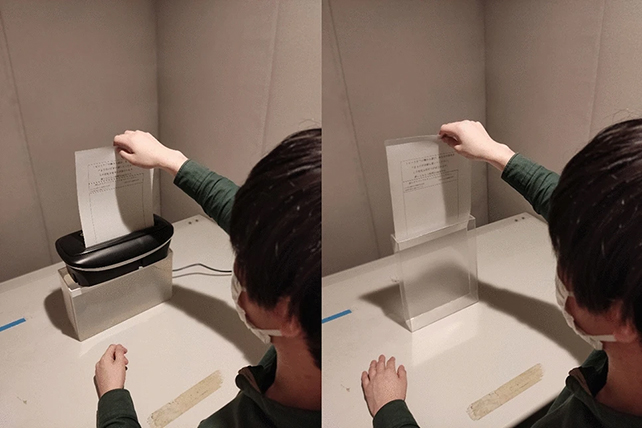Furious? Incandescent with rage? Really, really angry? Take a moment, write down a description of how you're feeling, and then dispose of the note. That could be enough to get the anger inside you to dissipate, according to a new study.
Researchers from Nagoya University in Japan ran two experiments involving a total of 98 participants. They found that the act of writing down feelings of anger – and then, crucially, throwing the paper away or shredding it – caused the anger to subside. This emotional shift didn't happen when the volunteers held on to the paper.
"We expected that our method would suppress anger to some extent," says cognitive scientist Nobuyuki Kawai.
"However, we were amazed that anger was eliminated almost entirely."
The study participants weren't told the purpose of the research, but were given excessively critical and insulting feedback on an essay they'd been asked to write, irrespective of the actual quality of their submission.
After the volunteers were given the critiques, they were asked to write down their thoughts on how they were feeling and how their emotions had been triggered. All of the participants reported an increase in their subjective anger level.
At that point, the individuals were asked to reread the critique. Some were then instructed to place their notes into a clear slip and leave their critiqued submission on the desk, while others were invited to dispose of it by scrunching the pages up or placing the paper into a shredder.
Using self-assessment questionnaires filled out by the participants, researchers were able to see how anger had been assuaged (or otherwise). For those who put their notes in the trash or the shredder, the anger typically went all the way back down to the baseline. In both trials, however, the 'retention' group's subjective anger remained higher than the baseline.
While anger can certainly be useful in some scenarios – in motivating people to tackle social injustice, for example – it can also lead to violence, abuse, or decisions that haven't been properly thought through. What's especially good about this anger management method is that it's easy and quick to do.
"This technique could be applied in the moment by writing down the source of anger as if taking a memo and then throwing it away when one feels angry in a business situation," says Kawai.

Previous research has also suggested that facing up to difficult feelings can help in working through them, but the effectiveness does seem to depend on the technique – writing something down rather than thinking it over, for example.
In the future, the researchers want to expand their findings further, perhaps examining whether writing notes digitally works the same as physical paper, or looking at how much time is needed to reread the notes (30 seconds, in these experiments).
The team behind the study also draws a link to the traditional Japanese practice of hakidashisara at the Hiyoshi shrine in Kiyosu: an annual event where small discs, representing reasons to be angry, get smashed.
"This study presents a new and convenient method for eliminating subjective anger," write the researchers in their published paper. "This method offers a cost-effective way to eliminate anger in various situations, including business meetings, childcare, and clinical applications."
The research has been published in Scientific Reports.
